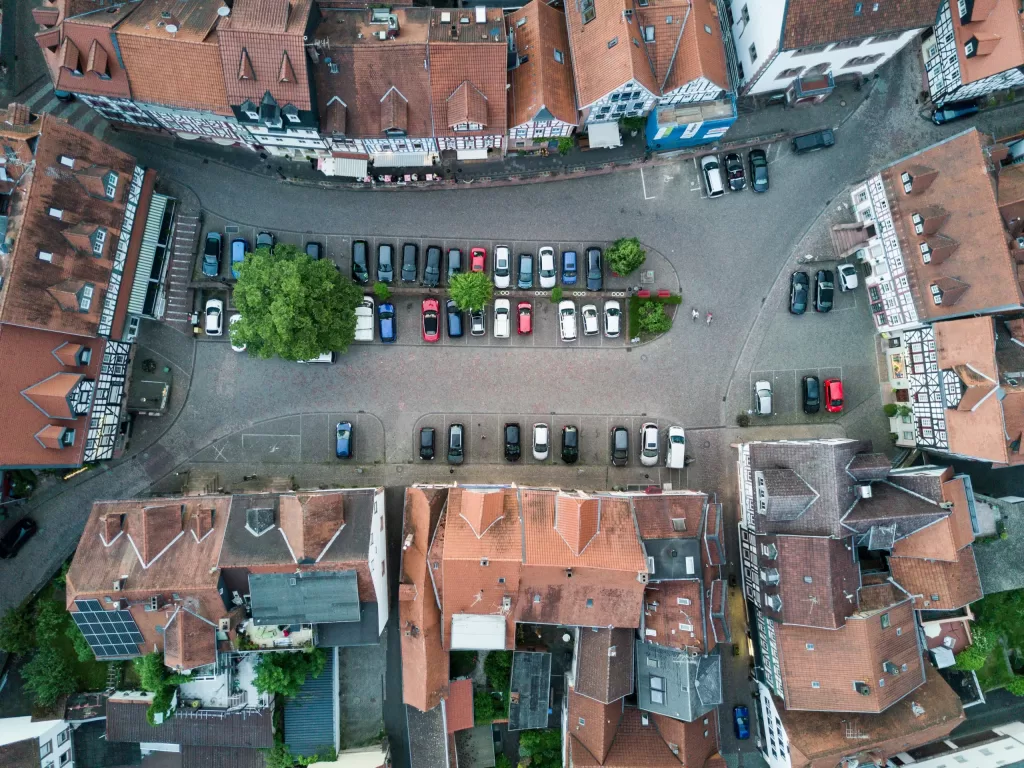With the continuously growing number of vehicles in urban areas, managing parking spaces has become a key challenge for effective transportation planning. Modern technologies enable cities to implement intelligent stationary traffic monitoring systems that increase efficiency, reduce congestion, support the enforcement of local parking policies, and improve residents’ quality of life.
Project Objectives
The project of automated stationary traffic monitoring utilizes 5G technology and advanced sensors for accurate tracking of parking space occupancy. The main objective is to collect and analyze real-time data, which will enable:
- Improved parking management and optimization of parking space utilization
- Ensure better oversight of parking rule compliance and increase the efficiency of inspection processes
- Provide data for informing about parking space occupancy through digital applications
- In the long term, enable the elimination of inefficient parking searches and related emissions
Key Components of the Project
- Intelligent Monitoring Vehicle: Equipped with camera systems and LiDAR technology for detecting vehicles in parking areas
- 5G Connectivity: Real-time data transmission to the central parking information system to accelerate data evaluation processes (e.g., parking fees) and provide access to camera footage for municipal police use
- Automated Parking Control: License plate detection and comparison with a database of authorized vehicles, including automated preparation of evidence packages enabling the initiation of administrative proceedings
- Analytical Tools: Processing of parking space usage data and inputs for transportation planning, especially statistical data on occupancy rates of specific areas, parking zones, or individual spaces, and identification of locations with the highest violation rates
- Integration with the Urban Ecosystem: Capability to connect with existing parking systems, mobile applications, and municipal information systems
Expected Benefits
Thanks to the implementation of a smart monitoring system, cities can significantly improve the efficiency of stationary traffic planning and management, as well as the overall administration of parking spaces, with an impact on broader stationary traffic policy. In the long term, this approach can positively affect traffic congestion caused by the search for available parking. Transparent and automated control, including efficient enforcement of parking fees, contributes to the fulfillment of established parking strategies and enhances road safety.
Support from the National Recovery Plan
The project for automated stationary traffic monitoring is part of a broader effort to digitalize and modernize cities, supported under the 2nd Call – Demonstrative Application of 5G Network Ecosystems for Smart Cities, Municipalities, and Regions. This initiative, led by the Ministry of Regional Development of the Czech Republic and financed through the National Recovery Plan, aims to help local governments and public institutions implement modern digital technologies and develop the Smart Cities concept.
At Gatum Group, we actively participated in this call and helped prepare and promote nineteen project applications with a total budget exceeding CZK 225 million. One of the supported projects involves the use of 5G technology in parking space monitoring, enabling cities to manage stationary traffic more effectively, optimize parking capacity usage, and ensure better oversight of parking policies.
Our role
We conducted a mapping of relevant approaches, best practices, and potential suppliers. Leveraging our experience in the Smart City domain, we embedded the solution into the city’s broader technological ecosystem. We prepared the complete project documentation to secure funding and supported our clients throughout the project implementation process.
3 minutes reading



